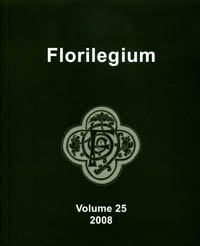Beowulf as a Philosophical Poem
Résumé
Beowulf examines evil and oblivion as philosophical problems. Recognition of the world’s evils challenges the faith that a perfect God governs all. Though heroic literature often promises that deserved fame will live on forever, that fame’s a stuff will not endure seems clear. The origin of evil seems obvious in the hero’s first battle, doubtful in the second, and undiscoverable in the last unless in nature itself. Though the poem’s voice, the wise Hrothgar, and the hero assert the immortality of fame, the poem includes in the story of the dragon’s treasure a powerful image of oblivion, which Beowulf denies in ordering his tomb and the poet defies in his work.Téléchargements
Publié-e
2008-01-01
Comment citer
Clark, G. (2008). Beowulf as a Philosophical Poem. Florilegium, 25, 1–27. Consulté à l’adresse https://journals.lib.unb.ca/index.php/flor/article/view/14393
Numéro
Rubrique
Articles



